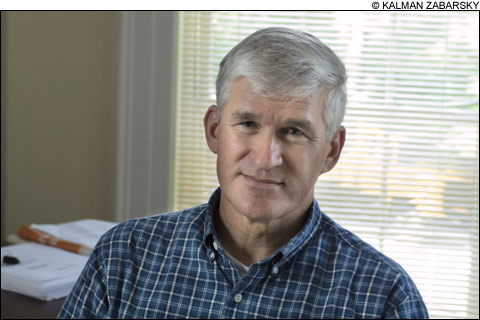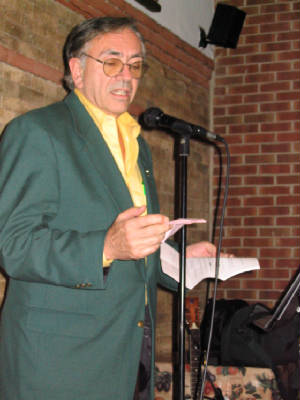I'm trying to imagine what the world would look like if Andrew Bacevich ran the United States.
Every couple of years, Bacevich -- a retired Army colonel who is now a history professor at Boston U -- releases a new book that goes something like this: America is overextended and entirely too militarized. We need to live within our means, bring the troops home and start practicing a citizenship where all of us (and not just the one-half of one percent of us) serve as citizen soldiers, devoted to the common defense of our nation instead of power projection around the world. "
Washington Rules: America's Path to Permanent War" is another one of these books; Bacevich is a bit of a one-note Johnny -- but it's an interesting, angry, erudite note, and so I keep returning to him.
Instead of rooting him on, though, it might be good to ponder how things change if anybody in power took Bacevich's views seriously.
So what does the world look like if America took Bacevich's advice? Different. There would've been no Iraq War, nor a Vietnam War, nor Korea. (Bacevich is a Vietnam veteran.) We wouldn't have troops in Europe or the Middle East or Asia. I'm guessing that Hawaii and Alaska might not even have statehood status. We wouldn't be importing oil -- our standard of living, as a result, would look quite a bit different -- and we might not be enmeshed in Afghanistan right now, in part, because America's meddling in the rest of the world wouldn't have invited the "blowback" of 9/11.
We'd look a lot more like Switzerland, in other words.
All well and good, I suppose. But there's more than that. In Bacevich's world, maybe the United States doesn't get involved in World War I. That doesn't seem like such a bad deal -- what did Americans get out of that war, exactly? -- but maybe we wouldn't have entered World War II either. Or if we had, we wouldn't have kept troops in Europe during the Cold War, and maybe we would've left Communism ascendant in places that were relatively free during the postwar period.
Much of this is conjecture on my part. But Bacevich's basic idea is that the United States shouldn't be trying to dominate and shape the rest of the world to its liking -- that we should be looking inward, trying to create and perfect our own democracy as an example to the world, rather than a model that we try to push. We should be trying to fix Cleveland and Detroit, he repeatedly says, instead of Baghdad or Kabul.
This
sounds isolationist, though Bacevich swears it isn't. And though it's a challenge to the worldview put forward by the Bill Kristol wing of the GOP -- which, in foreign affairs, is actually the only wing that matters -- it also strikes me as profoundly conservative. (Bacevich, despite the
Amy Goodman blurb on this book, seems to identify as a conservative of the Ron Paul
ish variety; he has written for National Review and remains a contributor to American Conservative magazine.)
Conservatives have one pretty nifty insight: That government can't control all the outcomes of its actions, and so the bigger it gets and the more it does, the more problems it is likely to make -- and the more likely it is to infringe on the liberty of people to make their own way in the world. I don't completely buy into the argument, which at its most extreme would eliminate a safety net for many Americans, but I can't disregard it. The problem is that -- for many conservatives -- that insight ends at the shoreline. Many of the folks who root on the Tea Party marchers would say it's not up to the federal government to fix Cleveland or Detroit; somehow, though, many of them are sold on the ability of that same government to fix -- or, at least, repair to a reasonable enough state -- Kabul or Baghdad. They would fly the
Gadsden Flag at home, but the American flag over foreign capitals. It's not just inconsistent; it's incomprehensible. At least Americans understand the language and culture and religion and politics of Detroit. We've made a lot of mistakes in Iraq and Afghanistan because we didn't know the landscape like we should.
So what does America look like if Bacevich runs it? We're a smaller, probably less-rich place. (America's economic might being both the result and the foundation of our power projection around the world.) We're still rife with conflict -- because, hey, that's what happens in democracies. But maybe we're more civic-minded, more bonded to our neighbors -- and, maybe, a bit less vulnerable to the horrors of the world beyond. (How often to terrorists try to attack Switzerland, after all?) There's something simple and pure, and thus seductive, about this vision. And maybe we'll find out what it looks like in reality sooner than later.
We can't afford to be the world's policeman anymore. It would be nicer if we could choose, wisely, that sort of future for ourselves. It looks like we'll have to bankrupt ourselves to it, instead. The result is likely to be unpleasant and wrenching. The good old days are probably over.









